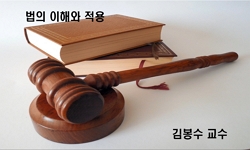William F. Buckley, Jr. sued <italic>Esquire</italic> magazine for libel in 1969, after <italic>Esquire</italic> published an article by Gore Vidal over Buckley's protests. Vidal's article was a rebuttal to a Buckley piece <...
http://chineseinput.net/에서 pinyin(병음)방식으로 중국어를 변환할 수 있습니다.
변환된 중국어를 복사하여 사용하시면 됩니다.
- 中文 을 입력하시려면 zhongwen을 입력하시고 space를누르시면됩니다.
- 北京 을 입력하시려면 beijing을 입력하시고 space를 누르시면 됩니다.
https://www.riss.kr/link?id=T10546128
- 저자
-
발행사항
[S.l.]: Indiana University 1999
-
학위수여대학
Indiana University
-
수여연도
1999
-
작성언어
영어
- 주제어
-
학위
Ph.D.
-
페이지수
271 p.
-
지도교수/심사위원
Adviser: Carol Polsgrove.
-
0
상세조회 -
0
다운로드
부가정보
다국어 초록 (Multilingual Abstract)
William F. Buckley, Jr. sued <italic>Esquire</italic> magazine for libel in 1969, after <italic>Esquire</italic> published an article by Gore Vidal over Buckley's protests. Vidal's article was a rebuttal to a Buckley piece <italic> Esquire</italic> had published in which Buckley recalled the on-air exchange of insults between him and Vidal while the two provided commentary for ABC-TV at the 1968 Democratic National Convention in Chicago. Vidal had called Buckley a “pro or crypto-Nazi”; Buckley had called Vidal a “queer.&rdquo.
Shortly after the television affray, Buckley asked <italic>Esquire</italic>'s editor, Harold Hayes, if the magazine would consider a piece in which Buckley reflected upon the incident. Hayes agreed to publish Buckley's piece on the condition that <italic>Esquire</italic> would invite Vidal to write a reply. Later, upon reviewing Vidal's proposed reply, Buckley and his lawyers insisted that the piece was libelous insofar as it charged Buckley with antisemitism, racism, war-mongering, and homosexuality.
Hayes found himself immersed in a marathon editorial dispute that became a protracted law suit. <italic>Buckley v. Esquire</italic> (1972) called for interpretation of revolutionary U.S. Supreme Court libel decisions, starting with <italic>New York Times v. Sullivan</italic> (1964), opinions in which the Court held that libel raised First Amendment issues when the press criticized public officials or public figures.
This study examines some 1,000 pages of documents from the dispute—correspondence, memoranda, legal briefs—that Hayes left to the library of Wake Forest University. Employing the “naming, blaming, claiming” model for analysis of disputes (Felstiner <italic>et al</italic>, 1980), the study uncovers how Hayes and lawyers for <italic>Esquire</italic> and Buckley grappled with what Hayes called “the constant possibilities of libel law.&rdquo.







